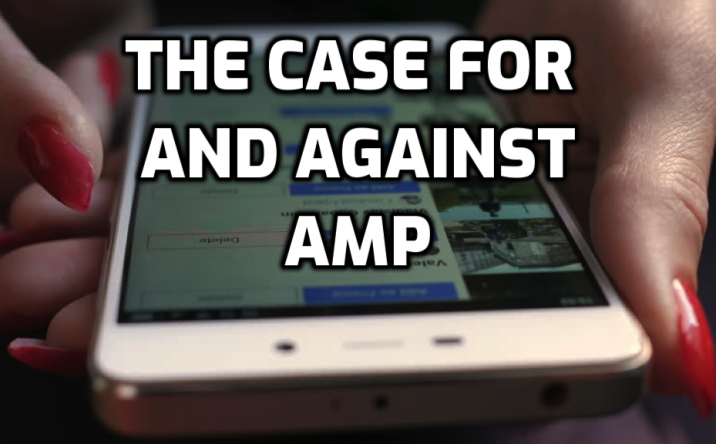What is AMP?
I’ve long ignored Amp (standing for ‘Accelerated Mobile Pages’). Designed by Google it is an open-source caching feature for mobile pages which make them load super fast. AMP is a
It’s google’s aim to speed up the web and therefore
The Case For Amp
- Faster Mobile page load speed. AMP can make your page size 10x smaller compared to the average website, with a page load speed of below 1 second.
- Better user
experiencer . We all know the faster our websites the better user experience. Good user experience translates into better profits, higher CTR, and sales. My Adsense account rep recently emailed me to say that some publishers are getting 90% higher CTR and 80% higher viewability. Amazing statistics but I do not know all the variables of how she got those stats.
- Access to AMP
carousal in google search. This is a big plus for news sites. AMO was originally designed for news sites until other genres started picking up the technology.

- Is your website focused on India or Africa? In places where there is slow internet use, there could be a significant benefit to the end-user in accessing web pages. Much of the Western countries though already have fast internet, which is improving.
- Performance increase but it could be small. If you are just after any performance increase you can get, it could be for you.
The Case Against AMP
- Google has said there is no ranking boost with AMP. I think website speed is important, because google are wanting a user focused experienced web, and a user focused experience web is a fast one. Do not neglect page speed. But google have gone on record saying AMP is not give a ranking boost.
- Google’s Gary Illyes publically stated AMP is not needed:
“Illyes notes that AMP is primarily interesting from a speed perspective, and if you can make your site really, really fast without AMP, then you may not need it. But overall, Illyes loves AMP, because it’s really fast when it loads from the search results.”
SearchEngineLand.com
- Is the speed increase worth the cost? Before anyone moves into amp they must weigh up the cost and time it takes to implement, with the benefits. Most times it takes so much time to implement with only small benefits.
- Is your site fast enough? If so you don’t need AMP. Take the google mobile speed test, if it’s under 2 seconds your site is very fast already.
- Where are your customers? If your primary US-based then the internet infrastructure here of 4g and 5g is fast, and it’s getting faster. AMP, therefore, will show marginal speed increases, if at all.
- There are other ways to increase speed other than
amp . Instead of pouring resources into AMP, the time is most likely better used put into other areas to increase site performance.
Alternatives to AMP
The alternative to AMP is to OPTIMIZE what you already have! Which for most of us is a much better road to travel up.
- Server Hardware. Moving to an SSD can increase speed, especially on database-driven sites like WordPress or e-commerce sites. Even better the NVMe SSD’s are faster than traditional SSD’s, some say four times faster.
- Server Optimization. Optimizing the server before touching the website is really a necessity. Upgrading to the latest
php version can make a difference. PHP 7 is three times faster thanphp 5.6. Just upgrading from PHP 7.2 to 7.3 is an 18 percent increase in performance. Read the benchmark results done by ‘Server Bolt‘.
- Image optimizations and CDN. As well as making sure images are optimized when you upload them. Using a CDN can help speed up image load. If you are looking for one consider Stackpath (it used to be MaxCDN).
- Use Cloudflare. You’d be able to use their CDN along with many other different caching features.
- Upgrade to the HTTP/2 Protocol. This protocol speeds up how things are connected throughout the web.
- Individual page optimization. If you use WordPress you want to cut down on pointless plugins, and use the W3 total cache (or even better go with the premium rocket.me plugin- much easier). For the rest of us, we need to make sure our developer is optimizing both the front end and backend databases.
Conclusion
If you run a news site AMP is great to get in the carousal on google search. It’s also good if you have lots of mobile traffic in slow internet locations like Africa or India. But AMP is not for everyone in the world. For the majority of people the cost and time is best used in optimizing the website. For a site focused on US traffic this is the best way to go, and the internet in many western countries is just getting faster.
So I would NOT recommend AMP for most people.

